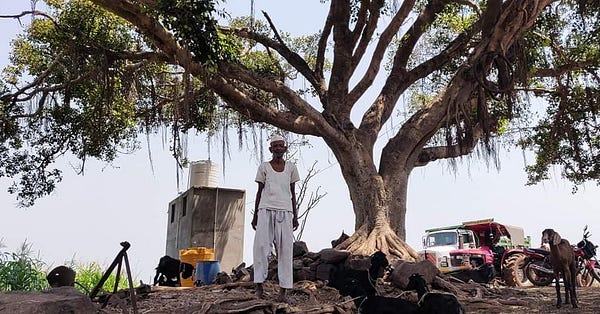Future of Ageing Newsletter is back!
Positive ageing, and other interesting developments
After a 3 month break, the Future of Ageing newsletter is back in your inbox. I was settling into a full-time role and took my time to get back to writing. Some fascinating developments since the last post.
There are powerful, endearing and inspiring stories all around us. Let’s start with a few that caught my attention.




Keep reading…
🎈Eldercare companies raise capital to expand
In mid-2016, I had written about how the conventional old age home model is evolving into variour senior living and care formats.
Kites Senior Care, a Bengaluru-based senior care service provider , has raised $2 million from Manipal Group’s Ranjan Pai. You can read more about it in this Mint article. Visit Kites Senior Care to know more about them.
Athulya, a Chennai-based senior care company, has raised INR 77 crores from a fund managed by Morgan Stanley. You can read more about it in this Business Standard article. Visit Athulya Living to know more about them.
Both organizations, launched in 2016, are run by well respected entrepreneurs and professionals in the space. Many other organizations, like Aaji Care based in Thane, are also expanding their footprint across the country.
Although limited to largely urban and financially secure families, these developments are wonderful validation of the growing senior living and eldercare market. Watch out for more from this space.
🗝️Health is a main determinant in working longer
In early 2021, I had shared some findings from the Longitudinal Study on Ageing in India (LASI), India’s first longitudinal study on ageing and the world’s largest longitudinal study.
In a recent article, researchers Aparajita Chattopadhyay at the International Institute of Population Sciences (IIPS) and David Bloom from the Harvard T.H. Chan School of Public Health analyse LASI data to look at labour workforce participation among older adults, and determinants of work as people get older.
Labour force participation among Indian older adults is lowest among the richest and the poorest, but for different reasons. The former, mainly engaged in white collar, well-paid jobs in their adult years, benefit from better pension/health insurance coverage and do not need to work. The latter, instead, must frequently stop working because of poor health.
You can read the full article here.
✍️ Safe Seniors e-magazine
Launched late last year by Care Finder®, this fun e-magazine has been designed for Seniors by Seniors. Here is their call for writers.
We have an editorial team for each page in the magazine. We welcome our readers to contribute their time or articles for the page. The request is simple. Each article is limited to a page or maximum of 500 words. In the profile page, we will profile seniors with a story to tell. It could be you or someone you know. Tell a story, share a poem, splash some humor, talk your hobbies, discuss interesting travel, easy to cook ideas, look into the daily panchangam … just look into our pages . From information perspective, we will constantly update relevant news update specific to seniors..
Fore more information, visit the Safe Seniors website. The site offers a simple sign up form, so do sign up, if you have a story to tell.
🌍 In other news
The recent Indian finance budget had some key announcements that tie directly into retirement planning, pensions, savings and other aspects of longevity. You can read this article from Wisdom Circle, about impact of the 2023 budget on retirees.
By 2030, 1 in 4 Singaporeans will be over the age of 65. To prepare for this future, Singapore launched its first action plan for successful ageing in 2015. Recently it released the 2023 Action Plan for Successful Ageing. You can download and read the 50-page document here, in case you are curious.
📥Future of Ageing Newsletter
The Future of Ageing newsletter brings you news, stories and trends from the longevity economy in India, in a short, easy-to-read format. Businesses, brands, investors, startups, researchers and analysts following this space are likely to find it interesting.



Great. Great to have a different perspective but a common cause
Good to see elder care companies rising up in India especially in South India. I have also put my mother in a relatively new company called redle care. https://www.redle.care/